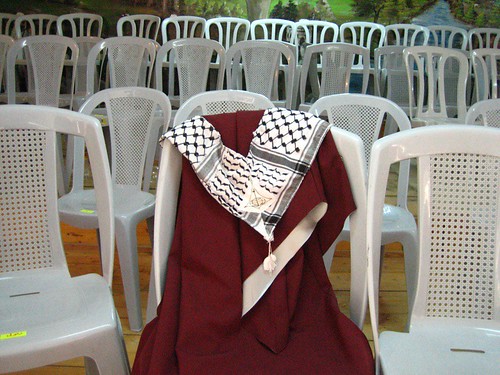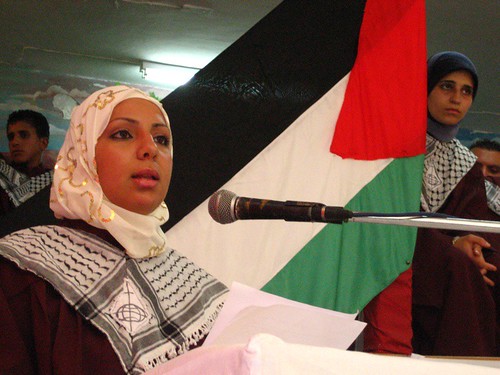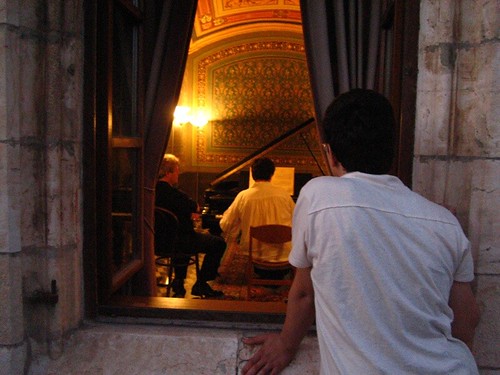The general feeling is that Jerusalem is still a safe place to be, likely out of rocket range and ethnically mixed enough to deter anyone from bombing, should any stray missiles land a bit off target. But there’s a definite tension in the streets downtown, and a walk through East Jerusalem any day of the week attests to the fact that things aren’t as they were a few weeks ago. Increased military and police presence, rumors of suicide bombers and a greater lockdown on the Arab parts of town have put an uneasiness in the air. The international and local communities are frustrated and angry with the U.S. government for its refusal to call for a ceasefire in Gaza or Lebanon. In certain shops downtown I’m greeted with a coolness I’ve rarely experienced from the friendly Palestinian shopkeepers, although a larger number have told me how much they appreciate the presence of internationals here and just wish the rest of America would open its eyes to the realities in this region.
Last week I was twice caught in the heightened security when the Israeli police shut the gates of the Old City, something I’d never seen before and didn’t realize was possible. Damascus Gate, the huge archway and main entrance into the Old City from East Jerusalem, was shut tight with massive doors that are normally hidden against the walls. Leaving the Old City on Friday night I was caught inside for about ten minutes, and Monay afternoon I was stuck outside for twenty as the size and impatience of the Palestinian crowd grew. A few Orthodox Jews would push their way through the crowd and the doors would part slightly, the soldiers allowing Israelis to pass through, while pushing back the Arab men, women and children who also tried to slip through and go about their business.
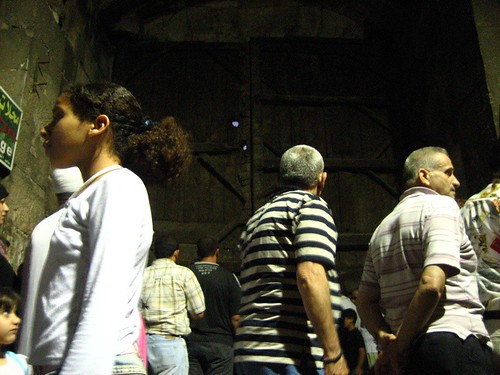
Stuck inside.
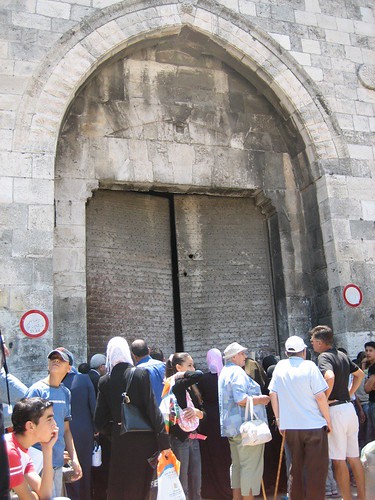
Stuck outside.
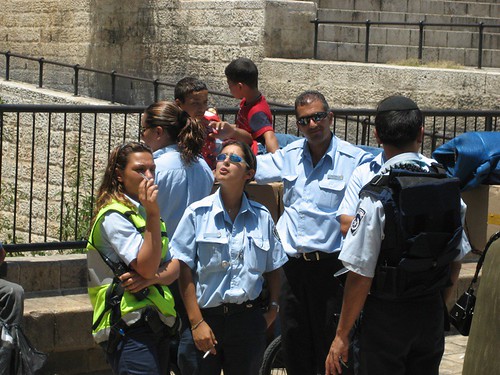
“All this racial discrimination is exhausting. I need a cigarette!”
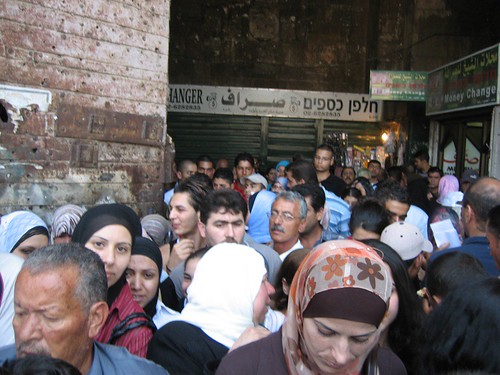
The doors part.
This evening I took a bus downtown, normally a five-minute trip. It was closer to twenty due to the closure of the main road leading from the Mount of Olives to the Old City. Security forces were lining the streets, barricades set up at every major intersection. All traffic was diverted to circuitous routes through neighborhoods, clogging the narrow streets and filling the air with futile honking. I eventually made it down to the main road near the bus station, and the police and soldiers were even thicker down there. I arrived just in time to see soldiers grab three young Palestinian men in headlocks, then drag them along the sidewalk to the post office where they pushed them up a staircase and into a hallway not visible from the street. The soldiers who followed them were pulling out their battery sticks as they entered the hallway, and the female soldiers who had been in the hall were sent out to the street. The observing crowd was milling and huddling and watching the drama and being pushed and told to move on by the soldiers and police.
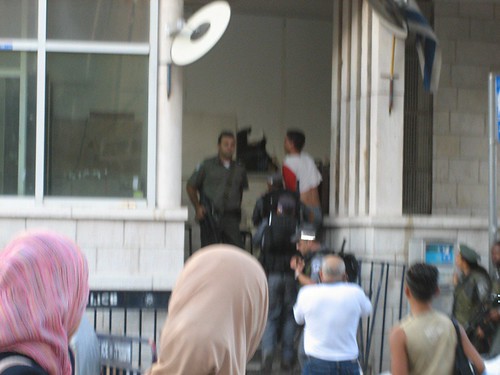
I managed to get one hurried, blurred photo as the last of the men was pushed up the stairs. After a few minutes a couple of the soldiers came out of the hallway and exchanged high-fives with their comrades, laughing and jostling each other. One of the female soldiers was wiping away a few tears.
I received an email this week showing a photo of young Israeli girls, about twelve years old, writing “To Lebanon with Love” on the side of rockets that the air force would later fire on targets in the south of Lebanon. I thought of this as I watched these soldiers high-five-ing each other after (presumably) beating the crap out of some unarmed Palestinian men. In this militarized society, the people inflicting the violence are being just as damaged as those receiving the violence, I feel. No one over here should have to live as they do.
Despite the tension and unrest in the city, people go about their business as best they can. It’s a survival mechanism, and a good one. I don’t want to give a disproportionate (word of the week) account of the good and the bad, so on a lighter note, here’s what else I’ve been doing besides playing photojournalist.
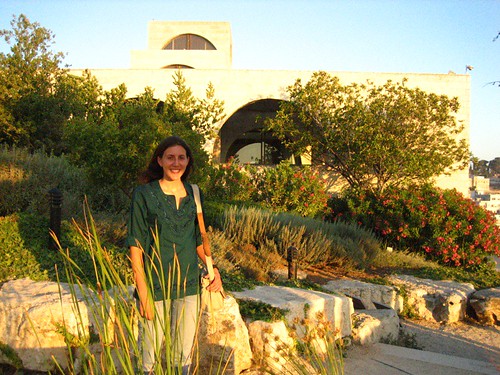
Going to concerts at the pretty Mormon Center for Jerusalem Studies (this is Julie in the gardens)
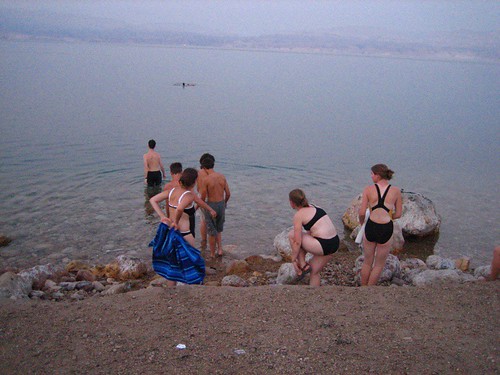
Celebrating Julie’s birthday with a trip to the Dead Sea for an evening picnic and a salty float
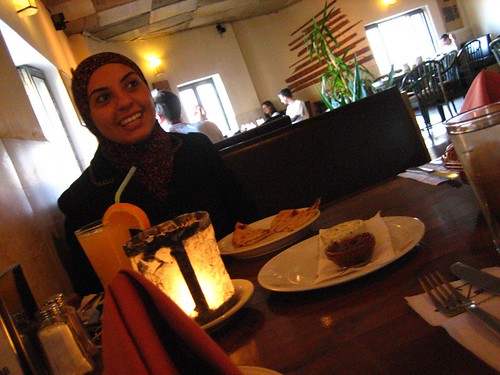
Chillin’ in Ramallah with the lovely Lina
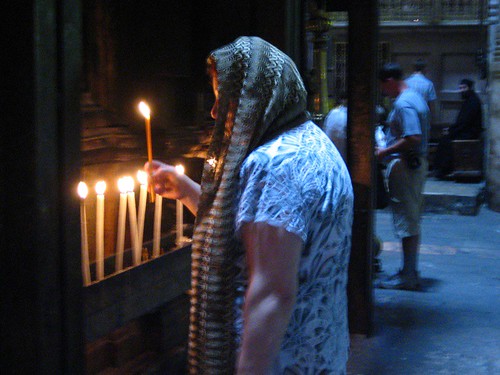
Photo-stalking the unsuspecting devout in the Holy Sepulcher
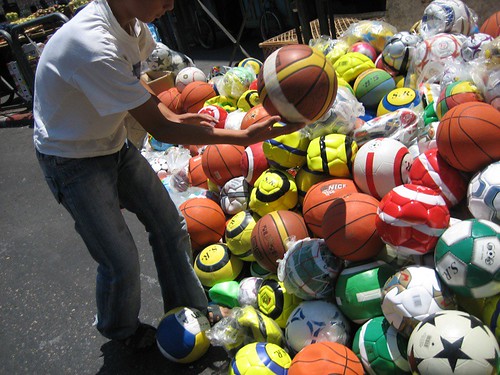
Wandering Jerusalem in search of the totally random, which is never difficult to find
Thank you all for your concern, thoughts and prayers. The UN security chief in Jerusalem has been out playing volleyball with us these past few weeks. He’s a smart man with a strong serve, and I figure as long as he’s out scoring aces every Wednesday night things can’t be too dangerous here.
